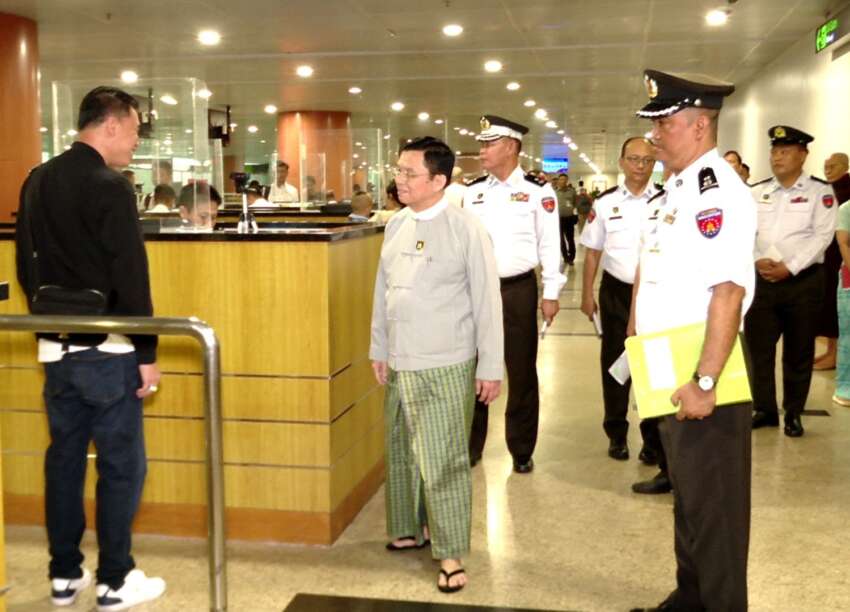
The military council has indefinitely suspended foreign employment permissions for basic workers due to low rates of Myanmar nationals returning from abroad, according to the Ministry of Labor in Naypyidaw. Currently, only skilled workers and those going abroad under government-to-government (G to G) agreements are being permitted after screening, sources from the ministry reported.
All foreign worker deployments were temporarily suspended starting February 14. Subsequently, the Labor Ministry has been screening and approving only skilled workers and those under G to G arrangements. Notably, the issuance of Overseas Worker Identification Cards (OWIC), which is essential for foreign employment, has been suspended for basic workers. The ministry source indicated that this situation aligns with directives from the head of the State Administration Council (SAC).
This restriction on foreign employment came after Min Aung Hlaing appointed Chit Swe, former Myanmar Ambassador to Thailand, as Labor Minister on January 31. Currently, only skilled workers heading to Japan and Russia, and workers under G to G arrangements to Laos are being personally screened and approved by the Labor Minister. The military council claims these restrictions are due to concerns about foreign currency earnings from overseas workers being lower than expected and the low rate of workers returning to Myanmar, leading to human resource losses.
Min Aung Hlaing has expressed concerns in military council meetings about Myanmar’s declining population, attributing it to increased emigration for various reasons, deaths, and declining birth rates. He specifically highlighted issues regarding foreign currency difficulties in Myanmar and inadequate revenue collection from overseas workers. The military council’s decision reflects their attempt to control the outflow of workers while facing multiple challenges including population decline, labor shortages, and economic difficulties. These restrictions significantly impact the livelihoods of basic workers who previously relied on foreign employment opportunities for better income.



